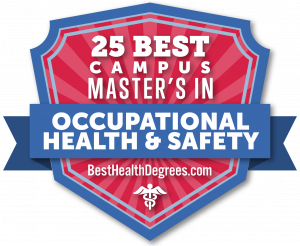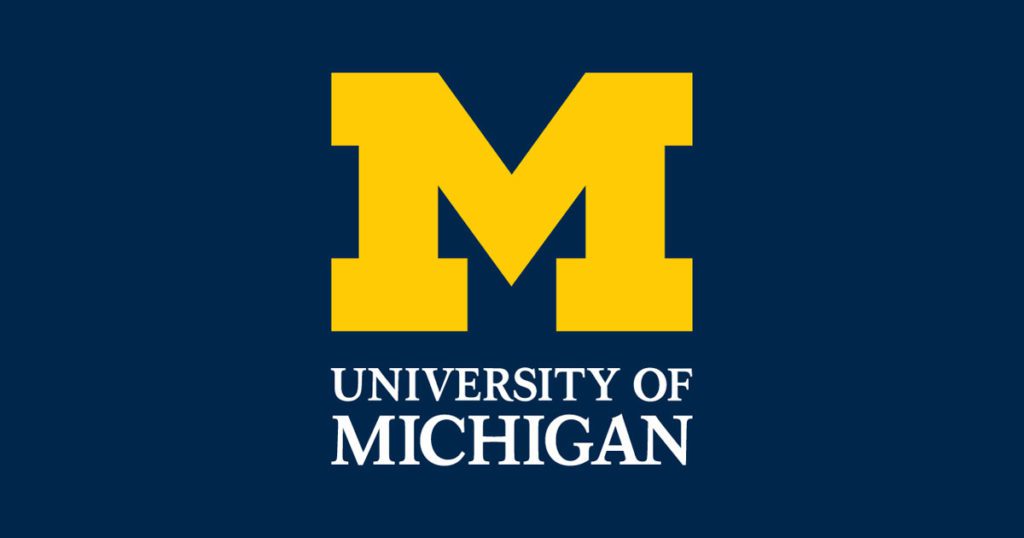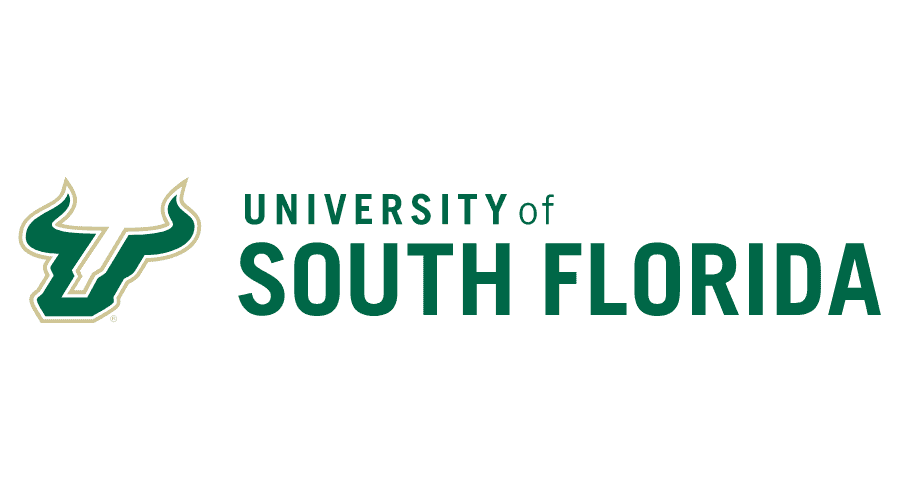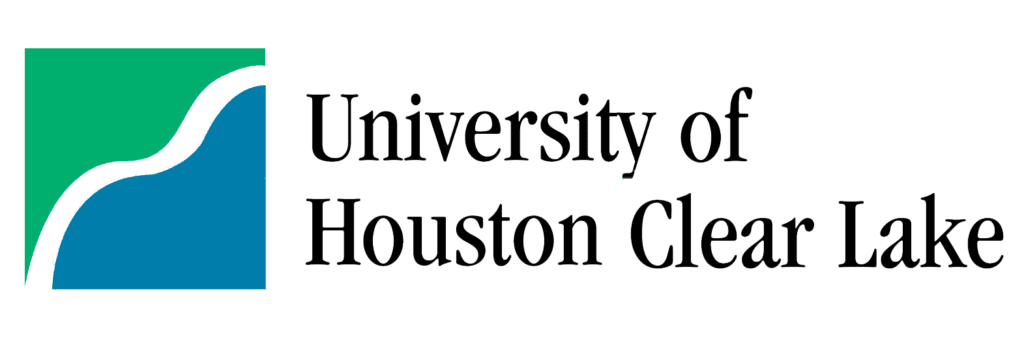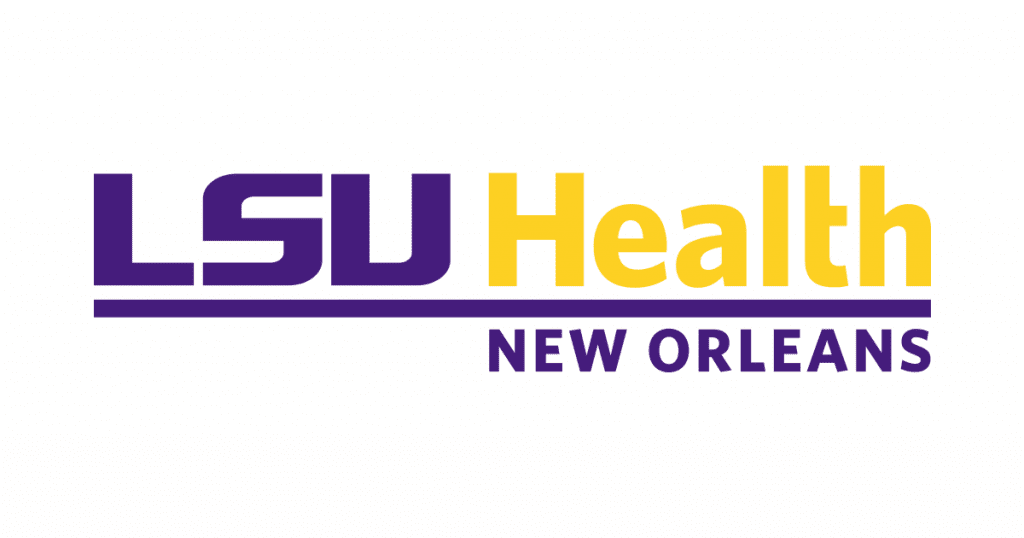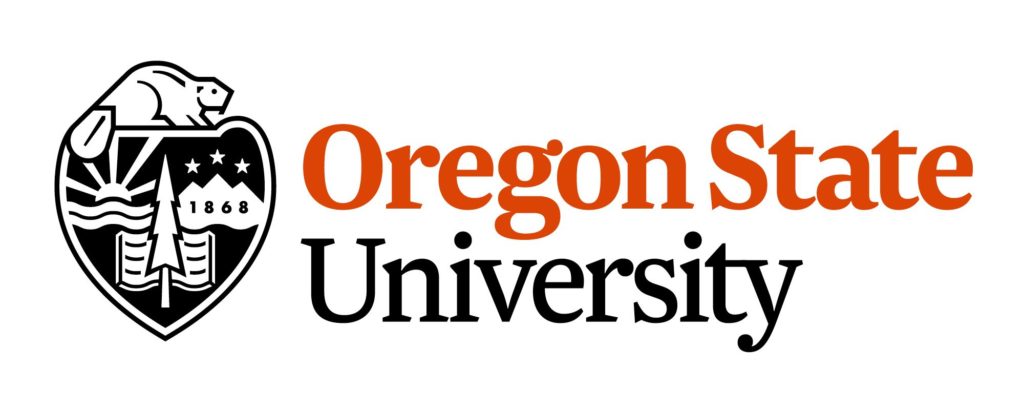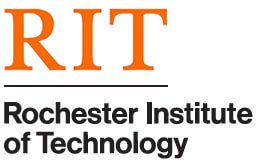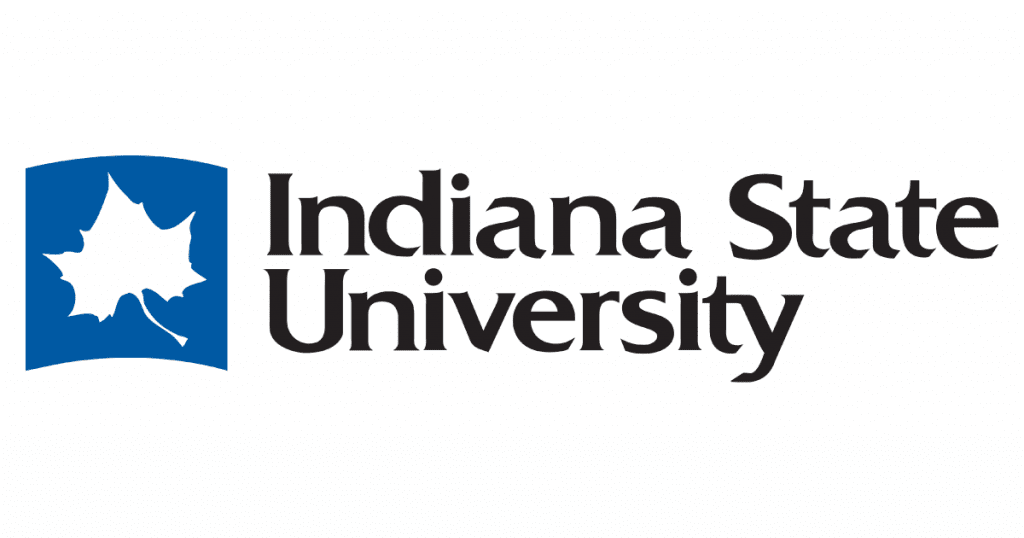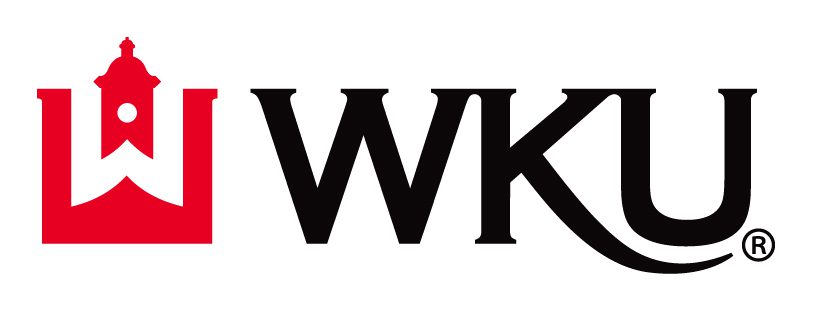Key Takeaways:
- University of Washington and Purdue University have two of the top occupational health and safety programs in the USA.
- Occupational Health and Safety degrees train specialists to improve workplace safety and health, and they offer master’s degrees with a focus on preventing workplace accidents and illnesses.
- The programs are ranked based on criteria such as cost, accreditation, reputation, and salary potential, using data from reputable education ratings.
The best Occupational Health and Safety programs are master’s degrees that train experts to examine, analyze, and develop safety measures. Health and safety in the workplace have a long history of accidents and illnesses associated with dangerous and unhealthy work environments.
Some of the images that come to mind are of miners working underground in poorly ventilated and unsafe shafts. Maybe you think of the Triangle Shirtwaist Factory fire in 1911. The fire killed 146 women locked in rooms by factory owners to prevent theft. Or, maybe the physical malformations that inflicted the Radium Girls in 1917 while painting watch faces with radioactive paint to illuminate the dials come to mind. The examples are, unfortunately, many.
Best Health Degrees has researched schools to identify some of the best master’s degree programs in Occupational Health and Safety for your graduate program search. We compressed information to provide a general idea of graduate coursework, admission requirements, cost, and school reputability.
Our Method: Ranking the 25 Best Master’s in Occupational Health and Safety Programs
To rank the 25 Best Master’s in Occupational Health and Safety Programs, Best Health Degrees editors researched accredited, trusted programs of all kinds. From our initial pool, we ranked programs according to price, accreditation, reputation, and salary potential. We use data from IPEDS, Niche, US News and World Report, and other higher education rating publications.
1. University of Washington
You’ll want to explore this Master of Public Health in Occupational Health and Environmental Medicine from this globally ranked Department of Environmental & Occupational Health Sciences (DEOHS) at Seattle’s University of Washington.
This is a broad, preventive medicine specialty degree that provides training in the evaluation and treatment of environmental and occupational exposures. You’ll take core courses covering:
- local and global perspectives
- ethics
- communication skills
- leadership
Among the classes are:
- Toxic Chemicals and Human Health
- Microbiome and Environmental Health
- Introduction to Environmental Safety
- Chemical Sampling & Analysis
- Disasters and Public Health
This experience will take the form of either a research thesis or a practice-based project. The practice project is a supervised, field study.
You’ll need to be accepted into the Occupational and Environmental Medicine Residency Program, Applied Science Accreditation Commission of ABET, or Madigan Preventive Medicine and Public Health Residency Program to apply for this program. Requirements for acceptance include a baccalaureate degree from an accredited program and a minimum 3.0 GPA. The application requires an $85 fee, as well as academic transcripts, CV/resume, letters of reference, personal history statement, and a statement of purpose.
Estimated Tuition Cost: $23,613-$40,254/per academic year
Fast Facts: UW is ranks #7 in Global Universities by U.S. News and World Report and #20 in its Best Value Schools
2. Purdue University
You can earn a master’s in Occupational and Environmental Health Science with this program from one of the nation’s top universities.
Holding accreditation from the Applied Science Accreditation Commission of ABET, this degree offers a thesis and non-thesis option which requires two years for completion. Among the curriculum’s courses are studied in:
- Introduction to Occupational and Environmental Safety
- Fundamentals of Epidemiology
- Toxicology
- Advanced Topics in Exposure Assessment
- Responsible Conduct of Research
- Advanced Industrial Hygiene Control Technology
Depending on the track you select, you’ll complete an MS project under faculty supervision or you’ll conduct thesis research. The program’s designed to lead to the Qualified Academic Program (QAP) certification offered by the Board of Certified Safety Professionals (BCSP), and meets the requirements for the Certified Safety Professional (CSP) certification.
Admission to the Graduate School at the West Lafayette campus requires an undergraduate degree from an accredited college or university with a 3.0 GPA, submission of academic transcripts, GRE test scores, letters of recommendation, resume, as well as a diversity essay. You’ll also need to file an application along with a $60 application fee.
Estimated Tuition Cost: $9,208-$28,010/per academic year
Fast Facts: This is the only ABET-accredited program in industrial hygiene at both undergraduate and graduate levels and Purdue is ranked in the top 10 Best Public Institutions by the Wall Street Journal
3. University of Michigan Ann Arbor
If you’re looking to make a difference in workplace safety, you’ll want to review the Occupational Safety Engineering and Ergonomics (OSE) master’s degree from UM-Ann Arbor. This degree offers a focus in applied ergonomics which will help you design safe and efficient workplaces.
You’ll need a bachelor’s degree in physical science or engineering to qualify for this program and you could complete the program in 10-16 months. Classes include studies in:
- Measure & Design of Work
- Automotive Human Factors
- Human Factors in Engineering Systems
- Industrial Engineering Instrumentation Methods
- Biomechanics, Occupational Safety Ergonomics
- Seminar in Occupational Health and Safety Engineering
- a Directed Research/Professional Project
The National Institute for Occupational Safety and Health (NIOSH) designates UM’s Center for Occupational Health and Safety Engineering (COHSE) is a NIOSH Education and Research Center (ERC).
This program is through the Department of Industrial and Operations Engineering. So, individuals should apply for admission through the Rackham Graduate School. Additionally, students do not need GRE test scores for 2022. But applicants must submit academic transcripts, letters of recommendation, statements of purpose, and a personal statement.
Estimated Tuition Cost: $24,344-$49,120/per academic year
Fast Facts: U.S. News and World Report ranks UM-AA at #7 in Best Engineering Schools and the university ranks #3 in Top Public Schools
4. Texas A&M University
Here’s an MPH degree with an Occupational Health and Safety concentration from this nationally ranked Texas university.
You’ll develop your 45-credit-hour degree plan, along with an advisor, from the program’s robust curriculum. Among the lecture courses are studied in:
- Occupational Biomechanics
- Industrial Hygiene
- Environmental and Occupational Diseases
- Ergonomics of the Upper Extremities
- Framing and Persuasion: Public Health in the Public Sphere
- Assessment and Intervention: Wicked Problems in Public Health
Students do not need to complete a thesis but do need applied practical experience and a capstone project.
Applicants do not need the GRE for admission. But, prospective students need to complete a SOPHAS application (with a $65 fee), submit letters of recommendation, official transcripts, as well as a statement of purpose.
Estimated Tuition Cost: $2,445-$5,123/per academic year
Fast Facts: Forbes ranks TAMU in the top 20 of the nation’s Top Public Schools and U.S. News and World Report considers the university as one of the top 100 Most Innovative Schools
5. University of Utah
Through its School of Medicine’s Rocky Mountain Center for Occupational and Environmental Health (RMCOEH), this university awards an MS in Occupational Health (MSOH) and offers five concentrations in:
- Industrial Hygiene
- Ergonomics
- Occupational Injury Prevention Research Training
- Occupational Safety
- General Occupational Health
It’s possible to complete this MSOH in 12 months of full-time enrollment and complete it with a summative exam. The concentrations share some required coursework in Applied Occupational Biostatistics, Administration and Management of Health and Safety Programs, Ergonomics, etc.
Individual concentrations offer specific courses such as:
- Fundamentals of Industrial Hygiene
- Occupational Epidemiology
- Advanced Industrial Hygiene
Only Occupational Medicine requires a research project. However, students must complete the two-part summative examination, which includes core exam topics and emphasis on specific subjects.
Admission to the program requires an application and a $55 fee. General graduate application materials include a baccalaureate degree from an accredited school with a 3.0 GPA. Additional items students need to submit include a resume or CV, letters of recommendation, and GRE or GMAT scores. The school may request other documents.
Estimated Tuition Cost: $6,666-$23,537/per academic year
Fast Facts: The University of Utah ranks in the top 100 of U.S. News and World Report’s National Universities. And, it is #190 in Money’s Best Colleges 2020-21 ranking
6. Rutgers University
The premier university of New Jersey, Rutgers’ School of Public Health offers a 45-credit hour, Master of Public Health with an Occupational Safety and Health focus.
The curriculum offers both on-campus and online coursework for this degree. You’ll take core courses in:
- Introduction to Environmental Safety
- Social and Behavioral Health Sciences in Public Health
- Leadership, and Management Essentials for Public Health
- Health Systems and Policy Principles and Methods of Epidemiology
Among the courses offered in the concentration study in Environmental and Occupational Health Practice, Environmental Risk Assessment, Principles of Occupational Health, and more. You’ll also participate in an Applied Practicum Experience (APE) which is followed by a Capstone Project.
You’ll apply through SOPHAS. Applicants need a bachelor’s degree, and submit academic transcripts, a personal statement of purpose, and letters of reference. GRE test scores are optional and not required for this MPH.
Estimated Tuition Cost: $926-$1,387/per credit hour
Fast Facts: U.S. News and World Report rates this #31 in its Graduate School rankings for Public Health and Forbes ranks Rutgers at #212 in its Top Colleges.
7. University of Illinois Chicago
UI Chicago’s Environmental Occupational and Health Sciences (EOHS) advanced degree has multiple options. The School of Public Health has a Master of Public Health with an Occupational Safety Concentration and a Master of Science which concentrates on Environmental Occupational and Health Sciences.
The MPH degree will examine toxicity and injury issues, risk management, as well as exposure, and risk assessment. The MS program is research and management-oriented, looking at policymaking, labs, and corporate environments. Some of the courses listed in the course catalog are topics in:
- Systems Approach in Environmental and Occupational Health
- Principles of Environmental Health Sciences
- Public Emergency Preparedness and Response
- Systems Approach in Environmental and Occupational Health
- Occupational and Environmental Disease
- Industrial Hygiene Laboratory
- Ergonomics and Human Factors
The MPH Handbook and MS Handbook are excellent resources for in-depth degree information.
UI-C utilizes SOPHAS for admission to the university and a supplemental application (requiring a $70 fee). Other required documents include academic transcripts, personal statements, letters of reference, and a resume or CV. The school may require other information as your application is reviewed.
Estimated Tuition Cost: $5,935-$12,369/per academic year
Fast Facts: UI-C ranks #16 in Best Graduate Schools for Public Health by U.S. News and World Report and in the top 100 U.S. Colleges by The Times Higher Education rankings
8. University of South Florida
Are you looking for a program that offers a foundational degree blending public health and technical sciences? If so, then check out this MPH with an Environmental and Occupational Health concentration from this highly ranked Florida school.
This 42-credit hour curriculum has a core, required, and concentration studies. Core classes involve studies in:
- History and Systems of Public Health
- Translation to Public Health Practice
- Population Assessment
Courses in an emphasis include:
- Environmental Occupational Health Risk Assessment
- Environmental Occupational Toxicology
- Principles of Environmental Health
You’ll also enroll in elective courses that will support your concentration. Additionally, the degree culminates with a Comprehensive Exam.
Applicants for this program will submit an application through SOPHAS for admission. You won’t need to provide GRE test scores, but you will need to provide a resume or CV, a personal statement, and also two letters of recommendation. Furthermore, applicants submit academic transcripts through SOPHAS.
Estimated Tuition Cost: $348-$431/per credit hour
Fast Facts: USF ranks #35 in Niche’s Best Colleges for Public Health and #20 in Best Public Health Graduate Schools by U.S. News and World Report
9. University of Houston Clear Lake
The MS in Occupational Safety and Health is through the College of Science and Engineering of UHCL. This program prepares students for a variety of health and safety careers. Furthermore, students can choose concentrations in:
- Industrial Hygiene
- Safety
- Process Safety Management
- Occupational Health and Safety
The last specialty is online.
You have the option of a thesis or non-thesis degree (online students aren’t eligible for the thesis option). Foundational prerequisites are necessary for general physics and chemistry, and you need to have completed algebra or pre-calculus. The MS OSHE requires courses in Statistical Analysis, Applied Statistics, and Research Methods. This program offers robust coursework in the concentrations which will provide you with a solid foundation for your professional goals. Non-thesis students must complete a Capstone Project.
For admission consideration, apply through ApplyTexas (with a $45 fee), official academic transcripts (and a 3.0 GPA) from your conferred bachelor’s degree, and required GMAT, GRE, or MAT scores. Prospective students also need a personal statement and letters of recommendation.
Estimated Tuition Cost: $9,798-$19,077/per academic year
Fast Facts: UHCL has accreditation from ABET and also ranks #48 in U.S. News and World Report’s Top Public School for Regional Universities West.
10. University of Oklahoma Health Sciences Center
The University of Oklahoma Health Sciences Center awards an MS in Industrial and Environmental Health Sciences and an MPH in Environmental Health degree through its School of Public Health. The MS degree holds Applied and Natural Science Accreditation Commission of ABET accreditation and the MPH is Council on Education for Public Health (CEPH) accredited.
You’ll need to complete a minimum of 45-credit hours for either degree. The MPH curriculum is comprised of core courses in Environmental Safety and Health, Principles of Epidemiology, and also Qualitative Methods. Other studies in EH will involve studies in:
- Principles of Environmental Health and Safety Management
- Occupational and Environmental Law
A practicum experience is part of the program. The MS curriculum lists Noise and Radiation Hazards, Biostatistics Methods, Occupational and Environmental Toxicology, and Environmental Health in its requirements and the MS requires Field Practice.
A SOPHAS application is required along with a supplemental application for admission. You’ll be asked for a goal statement, letters of recommendation, and a resume/CV. MPH students are NOT required to submit GRE test scores, but MS students DO need to provide their scores.
Estimated Tuition Cost: $5,119-$19,778/per academic year
Fast Facts: U.S. News and World Report ranks this #82 in its Best Graduate Schools for Public Health and is Oklahoma’s only CEPH accredited School of Public Health
11. Louisiana Tech University – New Orleans
LSU Health in New Orleans awards a 46-credit hour MPH Environmental and Occupational Health Sciences (ENHS). This is one of the best occupational health and safety programs available.
All MPH students take core coursework in topics such as:
- Foundations and Ethics in Public Health
- Biologic Basis of Health
- Principles of Environmental Health
- Principles of Epidemiology
- Behavioral Science Theories in Public Health Practice
Required studies in the ENHS curriculum include Principles of Occupational Health and Health Risk Assessment & Management along with electives chosen from a range of subject matters. Also required for the degree are a practicum and culminating experiences. The curriculum design qualifies you to sit for national certification exams in toxicology, and also public health.
You’ll begin the admission process by filing a SOPHAS application. Be prepared to submit academic transcripts from your bachelor’s program, resume or CV, letters of recommendation, and also a statement of purpose.
Estimated Tuition Cost: $10,650-$17,294/per academic year
Fast Facts: U.S. News and World Report ranks this school #60 in its Graduate Schools of Public Health. Additionally, the program has accreditation from the Council on Education for Public Health (CEPH).
12. California State University – Northridge
If you want a program that will prepare you to safeguard communities, corporations, industries, and employers from biological, chemical, and physical dangers, you should explore the MS in Environmental and Occupational Health from CSUN.
This MS thesis program requires 35-credit hours of online coursework, electives, and culminating experience. You can expect to take courses in:
- Environmental and Occupational Health Concepts
- Research Design
- Research Methodology
You’ll also take Administration of Environmental and Occupational Health Programs, Critical Review of the Technical Literature in EOH, and a Supervised Field Training experience in selected organizations or agencies. You’re able to choose from a wide slate of electives to complete the degree.
Admission to CSUN requires you to have a conferred bachelor’s degree with a minimum 2.5 GPA. In addition, you must make an application through Cal State Apply. The department looks at your overall GPA and science GPA, your work experience in EOH (or related field), a statement of purpose, and also lower-division core science classes.
Estimated Tuition Cost: $7,176 per academic year
Fast Facts: Forbes ranks CSUN #147 in its Top Colleges 2021 and Money ranks it #45 in its 2020 Best Colleges category.
13. Colorado State University
Fort Collins Colorado State University awards an MS in Environmental Health. Offered through the Department of Environmental and Radiological Health Sciences, this is one of the nation’s largest environmental health degrees. You can also choose from specializations in:
- Industrial Hygiene
- Occupational Ergonomics and Safety
- Epidemiology
Depending on your specialty, you’ll be able to take courses in:
- Environmental Health Risk Assessment
- Industrial Hygiene
- Principles of Ergonomics
- Occupational Safety
- Environment, Safety, and Health 3 Management
- Biological Basis of Public Health
- Environmental and Occupational Health Issues
A full slate of electives is available to round out your studies. This is a thesis program, regardless of your specialty area, and courses are available in research methods and data analysis.
You’ll need to be admitted by the Department of Environmental and Radiological Health Sciences. However, you also submit the application for the CSU Graduate Admission. The application has a $60 fee requirement. GRE scores, letters of recommendation, and academic transcripts must accompany the application.
Estimated Tuition Cost: $10,520-$25,791/per academic year
Fast Facts: CSU is in the top 30 percent of Best Bang for the Buck by Washington Monthly. It is also in the top 35 percent Best Public schools by U.S. News and World Report.
14. Oregon State University
Here’s a 60-credit hours MPH option in Environmental and Occupational Health from the nationally recognized Oregon State University in Corvallis, Oregon.
With this program, you’ll gain an interdisciplinary education that will prepare you to identify issues in occupational health and safety, as well as assessment, risk, and management. Core studies are:
- Integrated Approach to Public Health
- Introduction to Biostatistics
- Physical Agents and Human Health
- Air Quality and Human Health
- Environmental and Occupational Health and Safety Management
Elective coursework may include studies in:
- Environment, Safety and Health Policy & Law
- Toxic Substances in Food
- Food Law
- Infectious Disease Epidemiology
You’ll also complete an internship and an Integrative Learning Experience.
Admission to the College of Public Health and Human Sciences will require you to apply via SOPHAS, which will ask for academic transcripts, a personal statement, a resume/CV, and letters of recommendation. Additionally, you’ll need to have an awarded bachelor’s degree with a 3.0 GPA and submit a supplemental application. GRE test scores are not required.
Estimated Tuition Cost: $565-$1,179/per credit hour
Fast Facts: U.S. News and World Report rates this program #60 in its Best Graduate Public Health programs and Niche ranks it as one of the Best Colleges for Public Health in America
15. University of Minnesota – Duluth
You’ll want to check out the MS in Environmental Health and Safety (MEHS) which can lead to a Certified Safety Professional (CSP) designation.
Among the core courses, you’ll take are:
- Principles of Industrial Hygiene
- Environmental Safety and Legal Implications
- System Safety and Loss Control Techniques
- Fire Prevention and Emergency Preparedness
- Organization and Administration of Safety Programs
You can choose from numerous courses in Transportation Safety, Principles of Ventilation and Indoor Air Quality, and also Occupational Biomechanics and Work Physiology. To complete the curriculum, graduate students must complete an Internship in Environmental Health and Safety.
To apply to this occupational safety program, applicants must hold a bachelor’s degree. The preferred bachelor’s degrees are in engineering, science, or similar EHS fields. Applicants also need to submit academic transcripts, letters of recommendation, and a resume or CV. The school may request additional requirements along with the UMD Graduate School application.
Estimated Tuition Cost: $17,580-$27,204/per academic year
Fast Facts: UMD is one of U.S. News and World Report’s Best Value Schools and a top Public School
16. East Carolina University
Located in Greenville, North Carolina, ECU offers an MS in Environmental Health (MSEH). East Carolina’s program is presently one of eight graduate programs that has accreditation from the National Environmental Health Sciences Protection and Accreditation Council (NEHSPAC). Furthermore, it is the only online master’s degree with that accreditation.
You’ll complete 35 credit hours for this program, 26 hours of which include core coursework. Classes in the core are:
- Introduction to Epidemiology
- Principles of Toxicology
- Biostatistics for Health Professionals
- Topics in Environmental Health and Safety
- Environmental Health Program Management
You’ll also have a variety of electives from which to choose in areas such as solid and waste management, epidemiology, food safety, public health, and others. You can either write a professional paper in Environmental Health or complete a thesis. Regardless of their choice, prospective graduates must orally defend the thesis or paper.
ECU Graduate School admission will request you complete an application. The College of Health and Human Performance requires specific admission criteria for this graduate degree which requires you to hold a bachelor’s degree, complete a supplemental application, and provide letters of reference, a resume, as well as a statement of purpose. Applications require a $75 processing fee.
Estimated Tuition Cost: $4,749-$17,898/per academic year
Fast Facts: ECU ranks #107 in Top Public Schools by U.S. News and World Report. It also ranks in The Princeton Review’s Best 387 Colleges for 2022.
17. Rochester Institute of Technology
This MS in Environmental Health and Safety is on the Rochester, NY campus, online, or a combination of the two. You’ll find this program provides insight into the development, management, and also sustainability of environmental and safety measures.
You can choose between a thesis, comprehensive exam, or capstone project program option. Coursework offers studies in:
- EHS Management System Design
- Environmental, Health and Safety Management
- EHS Internal Auditing
- Corporate Social Responsibility
- Integrating EHS Management
Depending on your option, you’ll take Thesis Planning or Graduate Project. To graduate, students need to complete 30-credit hours and three hours in a Professional Elective.
Graduate Admission requires general application materials such as a conferred bachelor’s degree, personal statement, and undergraduate academic transcripts. If needed, the school may request additional materials, such as GRE scores. You can complete the $75 application online.
Estimated Tuition Cost: $52,092/per academic year
Fast Facts: RIT ranks #57 in U.S. News and World Report’s Most Innovation Schools and Forbes lists RIT at #177 in its Top Colleges in 2021
18. University of Cincinnati
Through its College of Medicine, UC awards an MPH with an Occupational Public Health concentration. This degree is for students who have completed a clinical year. You’ll also complete the Occupational Medicine Residency Training Program.
A 42-credit hour program, the curriculum for the Occupational Public Health, is comprehensive and includes core studies in:
- Environmental Public Health
- Health Systems & Policy
- Introduction to Qualitative Methods
- Social & Behavioral Foundations of Public Health
The concentration offers Principles of Occupational Exposure Assessment, Safety and Ergonomics, Occupational Health Management, and an Applied Practice Experience as well as an Integrated Learning Experience. The latter offers a choice between a thesis or capstone project option.
As with many other public health programs, you’ll make applications through SOPHAS. The college encourages students with a bachelor’s degree (and 3.0 GPA) and an interest in public health to apply. Applicants do not need to provide GRE scores. However, they should submit official academic transcripts, personal statements, CV or resume, and also letters of recommendation. Additionally, the school may ask students to submit a supplemental application to the UC Graduate School.
Estimated Tuition Cost: $13,224-$24,966/per academic year
Fast Facts: The University of Cincinnati ranks in the top 30% of U.S. News and World Report’s Best Colleges and is #55 in Niche’s Top Public Universities in America ranking
19. University of Toledo
If you’re wanting to focus on Industrial Hygiene, you may want to look at the MS in Occupational Health (MSOH). The curriculum is designed to qualify you to sit for certification, such as the Board of Certified Safety Professionals (CSP) as well as the American Board of Industrial Hygiene (CIH).
Coursework in the MSOH with Industrial Hygiene caters to those with little to no experience while providing seasoned professionals with current knowledge and skills enhancement. The overall graduate plan for this degree includes coursework in:
- Occupational Health and Safety
- Chemical Agents
- Hazard Control
- Risk Assessment
- Epidemiology
- Biological Agents
You can opt to write a thesis or do a scholarly project. Those with less than a year of experience must complete an internship. Classes are on weekends and evenings to accommodate those working full-time.
To apply, students submit proof of a bachelor’s degree with a 3.0 GPA, recommendation letters, official academic transcripts, a resume or CV, a personal statement, and an application for admission consideration. Applicants do not need to send in GRE scores. Be sure to review the undergraduate foundation courses needed to apply to this program.
Estimated Tuition Cost: $28,932-$38,292/per academic year
Fast Facts: the University of Toledo is ranked in the top 100 public universities by Wall Street Journal/Times Higher Education
20. Eastern Kentucky University
The College of Health Sciences at this Richmond, Kentucky university awards a Master of Public Health with an Environmental or Occupational Health & Sustainability specialty. This program offers classes in the evening, on Saturdays, and online for the convenience of working adults.
The CEPH accredited program has core classes and curriculum in:
- Biostatistics
- Public Health Organization and Administration
- Introduction to Environmental Health
- Research Methods in Public Health
- a Capstone Project
Studies in your concentration will cover Air Quality Assessment, Total Worker Health, and Environmental Toxicology. You’ll also complete an Environmental Health Applied Practice Experience and an Integrative Learning Experience prior to graduation. The department also offers an Industrial Hygiene Graduate Certificate.
Besides the application, applicants must submit proof of a bachelor’s degree, a statement of personal and professional goals, letters of recommendation, and also academic transcripts for admission. Also, the school may ask for additional documentation if needed.
Estimated Tuition Cost: $9,900-$13,950/per academic year
Fast Facts: EKU ranks at #40 in U.S. News and World Report’s Best Value Schools category and #25 in the publication’s Top Public Schools rankings
21. Indiana State University
Whether you’re looking for an MA or MS in Occupational Safety Management, Indiana State University has a degree for you. You even have the option to attend classes on the Terre Haute campus or 100% online.
The 33-credit hours curriculum requires research classes in Statistics for Experimental Research in Technology and Research Methods. You’ll then choose 12 hours from several subjects such as:
- Human Factors/Ergonomics in Safety Management
- Process Safety and Hazardous Waste Operations Management
- Safety Legislation, Litigation, and Compliance
- Administration Procedures for Occupational Safety Management
Students can take other courses outside of the department with approval and electives from within the College of Technology. The MA track requires you to complete a thesis and the MS calls for you to complete a field research project.
Prospective students must make an application for admission before the school considers them for admission. Masters students must hold a bachelor’s degree with at least a 2.7 GPA. You may need to provide GRE scores and other documents so you’ll want to discuss admission procedures with an advisor from the College of Graduate and Professional Studies.
Estimated Tuition Cost: $432-$562/per credit hour (NOTE: there is no residency requirement for online students)
Fast Facts: This program is accredited by the Association of Technology, Management, and Applied Engineering (ATMAE) and USI is accredited by the Higher Learning Commission.
22. East Tennessee State University
ETSU, located in Johnson City in upper East Tennessee, awards an MPH in Environmental Health developed to prepare you for administrative positions in environmental health.
You begin the 43-credit hour program with core courses in:
- Analytical Methods in Public Health
- Health Systems, Regulations, and Policies
- Community-Based Methods in Public Health
- Health Leadership & Management
Some of the concentration classes are studies in:
- Public Health Law
- Toxicology
- Environmental Health Administration
- Environmental Health Practice
- a seminar
Additionally, you’ll take electives, complete a field experience, and complete the program with a Capstone Project.
Admission to the program requires both a minimum undergraduate degree GPA of 2.75 and letters of recommendation. However, applicants do not need to submit scores for admission. However, students with a GPA lower than the minimum required also may want to send in standardized test cores. Also, the application is through SOPHAS.
Estimated Tuition Costs: $8,640 to $23,760 per academic year
Fast Facts: Ranks #82 Best Graduate Public Health program by U.S. News and World Report. ETSU is also one of Forbes‘ Best Public Colleges.
23. Western Kentucky University
You can earn an MS in Environmental & Occupational Health Science from this Bowling Green, Kentucky university taking 36 credit hours to complete. This master’s degree in health and safety program is 100% online.
Among the courses in this degree program are:
- Environmental Toxicology
- Principles of Environmental Health
- Biostatistics for Public Health
- Health Promotion in the Workplace
- Epidemiology: Practice and Theory
You’ll also be able to enroll in EOHS electives from among the many offered courses such as Industrial Hygiene, Public Health Management of Disasters, Air Quality Management, and more. With advisor approval, you’ll also be able to take non-departmental electives Health Behavior, Advanced Biostatistics, Advanced Epidemiology, etc. Either a thesis, internship, or applied experience culminates your degree. Professional certificate classes are available in Environmental Health and Safety and Workplace Health Promotion.
You’ll create an application account to begin the admission process. Graduate School admission requirements include a resume/CV, written personal statement, two professional references, and one of five academic requirements as stated on the Graduate School webpage.
Estimated Tuition Cost: $8,640-$23,760/per academic year
Fast Facts: WKU ranks #521 Top Colleges for 2021 by Forbes and #158 in Best Graduate Public Health Schools by U.S. News and World Report
24. Southeastern Oklahoma State University
If your career goals include leadership roles you’ll want to explore this Occupational Safety and Health, Master of Science program from SOSU in Durant, Oklahoma. This program is online.
Among the courses, you’ll take are:
- Occupational Safety Statistics
- Philosophy of Safety Management
- Industrial Hygiene
- Toxicology,
- Advanced Ergonomic Engineering
- Crisis Preparedness and Occupational Security
- HAZMAT
Industrial Hygiene and HAZMAT include labs conducted on one weekend. Each semester offers courses in Current Literature review and Internships in Occupational Safety. If you pursue a thesis track, you’ll complete Research in Occupational Safety. The program is 35 credit hours long and includes general education courses.
SOSU uses a two-tier admission process. You’ll begin by completing the Graduate School application and you must have an undergraduate degree with a minimum 2.75 GPA. The school may request GRE test scores. Additionally, the OSH department requires certain admission criteria as well.
Estimated Tuition Costs: $4,716-$10,872/per academic year
Fast Facts: Niche ranks SOSU #695 Colleges with the Best Academics in America and U.S. News and World Report ranks it #50-#66 Top Public Schools
25. Keene State College
Offered through the School of Sciences, Sustainability, and Health of this New Hampshire public institution, you can earn an MS in Safety and Occupational Health Applied Sciences in 36 credit hours.
The curriculum has classes on Current Issues in:
- Safety
- Best Practices in Safety
- Safety Management Systems
- Advanced Safety Research
- Risk and Safety
- Applied Occupational Health
- Legal and Ethical Issues
You’ll also complete a Capstone Experience or graduate practicum experience or applied safety research to finish the program. This degree is for both the seasoned professional and the student looking to become health and safety of employees from a variety of perspectives.
Admission requires you to hold a bachelor’s degree with a minimum 2.5 GPA, provide an essay and goal statement, and three professional recommendations. Those applicants with a previous internship and or work experience get preference.
Estimated Tuition Costs: $9,756-$10,692/per academic year
Fast Facts: KSU ranks in the top 10 Regional Colleges North by U.S. News and World Report and the Best Value Colleges in America by Niche
What is Occupational Safety and Health?
In 1970, President Richard Nixon signed into US law, the Occupational Safety and Health Act (OSHA), to develop and maintain regulations and health standards across the board for employees. This act created a federal overseer to ensure employees work in safe and healthy environments. Colleges and universities devote academic programs to this field. They train experts to examine, analyze, and develop safety measures across a wide spectrum of settings.
Why Should You Get a Master’s in Occupational Safety?
The answer to this question is dependent on your career goals. Sure, you can find employment in this field with a high school diploma, or a bachelor’s or associate degree, but an advanced degree will allow advancement in your profession and demonstrate to your employer that you have a commitment to your specialty. Earning your graduate safety practitioner designation prepares you for Certified Safety Practitioner (CSP).
Having a master’s degree may allow you to assume more responsibility and move up in your company, which typically equates to more money and job security. You’ll gain the tools and skills necessary to effect genuine change in your field to identify health and safety concerns, develop procedures, change organizational culture, and also assure OSHA compliance. Many master’s programs in the field also meet OSHA certification standards.
What Do You Learn in a Masters in Occupational Health and Safety USA?
Occupational safety is an interdisciplinary profession. It combines physics, biology, and chemistry with engineering and technology, along with legal aspects, with the goal of reducing accidents in the workplace. Students interested in an online occupational safety program take general education courses and then concentration classes in an area of focus. Listed below are some of the common classes students take.
- Safety in the Laboratory
- Health Education and Medical Terminology
- Responsible Conduct in Research
- Systems Safety Program
- Industrial Safety Chemistry
- Health Technology
- Statistical Methods for Biology
- Contemporary Safety Topics
- Environmental Applied Sciences
- Occupational and Environmental Health Sciences
- Environmental Risk Assessment
- Advanced Topics in Exposure Assessment
- Industrial Hygiene Control Technology
- Emergency Systems
- Fire Science
- Advanced Industrial Hygiene Instrumentation Techniques
- Fundamentals of Epidemiology
- Physical Agents in Environmental Health
- Aerosol Science
- Occupational Safety and Management Culture
- Toxicology
- Introduction to Environmental Health
- Occupational Biomechanics and Ergonomics Laboratory
- Seminar in Health Sciences
- safety training strategies
- occupational therapy
- workplace safety standards
- safety procedures
Where Can You Work in Occupational Safety?
According to the U.S. Bureau of Labor Statistics, there are several OSH careers available, and one that should meet your goals. You can typically find employment in the manufacturing industry, construction, hospitals or health systems, local, state, and federal government agencies, and consulting services.
What Does an Occupational Health Professional Do?
Perhaps, the best description is from Occupational Health and Safety Administration (OSHA). In general, a professional safety specialist develops and enforces safety regulations. These environmental professionals put processes in place, analyze and write reports, and investigate accidents, incidents, or complaints.
What are Careers in Occupational Safety?
Individuals with occupational safety degrees understand loss control management, accident prevention, and also safety technology. Some professionals with occupational safety degrees focus on specific areas like construction safety, safety and health management, or also environmental management. A safety degree online program can also lead to a safety career in hazardous materials management using hazard control technology. Also, a Safety Specialist and a Safety Technician are two common roles.
Other careers, as listed by the BLS, include Construction and Building Inspectors, Environmental Science and Protection, Fire Inspectors, Environmental Scientists and Specialists, Health and Safety Engineers, or Emergency Management Directors, and more. Job titles include Industrial Hygienist, Safety Engineer, Environmental Health and Safety Director or Manager, Risk Manager, and also Safety Coordinator.
What is the Job Outlook?
The US Bureau of Labor Statistics estimates a 7 percent job growth for jobs in the occupational health and safety fields, which is as fast as the national average. Job demand varies from one geographic region to another and also by industry. Around 40 percent of jobs in occupational health and safety are in the manufacturing and also government sectors.
How Much Can You Make?
In general, the BLS cites salaries for Occupational Health and Safety professions ranging from $73,740 to $77,370 depending on your education, job title, and place of employment. Entry-level positions pay less than safety specialists with experience.
- Construction and Building Inspectors – Average Yearly Salary $61,640
- Environmental Science and Protection – Average Yearly Salary $47,370
- Fire Inspectors – Average Yearly Salary $63,080
- Environmental Scientists and Specialists – Average Yearly Salary $76,530
- Health and Safety Engineers – Average Yearly Salary $99,040
- Emergency Management Directors – Average Yearly Salary $76,730
Indeed publishes a nationwide median salary of $93,317 and PayScale suggests an average salary of $83,000 depending on your specialty and location.
Why is Accreditation Important?
All the programs we rank have accreditation from independent agencies. They include The National Environmental Health Science and Protection Accreditation Council (EHAC) or Council on Education for Public Health (CEPH), and also other Department of Education recognized groups. Also the Applied Science Accreditation Commission or ABET website.
How Much Does a Degree Cost?
Prospective students should apply for financial aid by completing the Free Application for Federal Student Aid (FAFSA). Furthermore, some schools might require the FAFSA on file for departmental scholarships or stipends. Also, you may be eligible for graduate student loans.
Additional Programs
Below is a list of additional schools that offer Occupational Health and Safety degree programs.
- Slippery Rock University – Slippery Rock, Pennsylvania
- Ohio University
- Central Washington University
- Pennsylvania Indiana University
- Illinois State University
- Missouri University
- Fairmont State University





Related:
